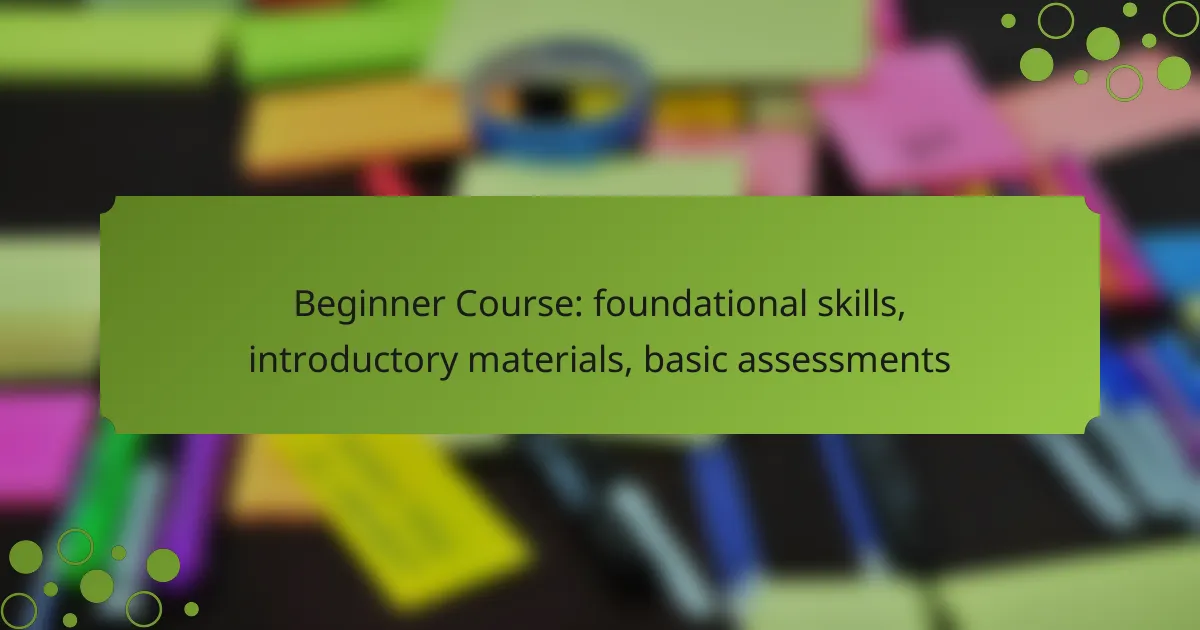Workshop courses provide an engaging learning environment where participants gain hands-on experience and practical applications of concepts. Through collaborative group activities, these courses foster deeper understanding and retention, making them an effective method for skill development across various fields.

What are the benefits of workshop courses in Canada?
Workshop courses in Canada offer practical benefits such as hands-on experience, enhanced collaboration, and immediate feedback, making them an effective learning method. Participants engage directly with the material, allowing for a deeper understanding and application of concepts.
Hands-on experience with real-world applications
Workshop courses emphasize hands-on experience, allowing participants to apply theoretical knowledge to real-world scenarios. This practical approach helps learners to grasp complex concepts more easily and see their relevance in everyday situations.
For example, in a workshop focused on digital marketing, participants might create actual campaigns using tools like Google Ads or social media platforms. This direct application reinforces learning and builds confidence in using these skills professionally.
Enhanced collaboration through group activities
Group activities are a cornerstone of workshop courses, fostering collaboration among participants. Working in teams encourages the sharing of diverse perspectives, which can lead to innovative solutions and deeper insights into the subject matter.
In a workshop setting, participants might engage in brainstorming sessions or collaborative projects, which not only enhance learning but also build valuable networking opportunities. This collaborative environment is particularly beneficial in fields like design or technology, where teamwork is essential.
Immediate feedback from instructors
One of the key advantages of workshop courses is the immediate feedback provided by instructors. This real-time assessment allows participants to understand their strengths and weaknesses right away, facilitating quicker learning and improvement.
Instructors can offer tailored advice during hands-on activities, helping participants to refine their skills on the spot. This immediate interaction contrasts with traditional classroom settings, where feedback may be delayed, making workshop courses particularly effective for skill development.

How do workshop courses enhance learning?
Workshop courses enhance learning by providing hands-on experiences that engage participants actively. This approach fosters deeper understanding and retention of concepts through practical applications and collaborative group activities.
Active participation improves retention
Active participation in workshop courses significantly boosts retention of information. When learners engage directly with the material, they are more likely to remember and apply what they have learned. This can include discussions, role-playing, or problem-solving activities that require input and collaboration.
To maximize retention, facilitators should encourage questions and discussions among participants. Techniques like think-pair-share or small group brainstorming can create an interactive environment that reinforces learning. Avoid passive learning methods, as they tend to result in lower retention rates.
Practical skills development through exercises
Workshop courses focus on practical skills development through targeted exercises that simulate real-world scenarios. Participants can practice techniques and apply theories in a controlled setting, which enhances their competence and confidence. For example, a cooking workshop may involve preparing dishes, while a coding workshop could include building simple applications.
It’s essential to design exercises that are relevant and challenging yet achievable. Incorporating feedback sessions allows participants to refine their skills and learn from mistakes. Consider using a mix of individual and group exercises to cater to different learning styles and encourage collaboration.

What types of workshop courses are available online?
Online workshop courses offer a diverse range of hands-on experiences across various fields, allowing participants to engage in practical applications and group activities. Popular types include creative writing, digital marketing, and technical skills workshops, each designed to enhance specific competencies through interactive learning.
Creative writing workshops
Creative writing workshops focus on developing writing skills through practical exercises and peer feedback. Participants often engage in activities such as writing prompts, group critiques, and collaborative storytelling, which foster creativity and improve narrative techniques.
When selecting a workshop, consider the genre you want to explore, such as fiction, poetry, or screenwriting. Look for courses that offer personalized feedback and opportunities to share your work with others, as this can significantly enhance your learning experience.
Digital marketing workshops
Digital marketing workshops provide hands-on training in areas like social media marketing, SEO, and content creation. These workshops typically include case studies, real-world projects, and group discussions, allowing participants to apply concepts in practical scenarios.
To maximize your learning, choose workshops that cover current trends and tools in digital marketing. Look for courses that offer certifications, as these can enhance your resume and demonstrate your skills to potential employers.
Technical skills workshops
Technical skills workshops focus on specific tools and technologies, such as coding languages, software applications, or data analysis techniques. Participants engage in practical exercises that help them build proficiency through hands-on projects and collaborative problem-solving.
When enrolling, consider your current skill level and the specific technologies you wish to learn. Workshops that offer project-based learning and access to industry-standard tools can provide a more robust educational experience, preparing you for real-world applications.

What should I consider when choosing a workshop course?
When selecting a workshop course, prioritize hands-on experience, practical applications, and group activities that align with your learning objectives. Consider factors such as instructor qualifications, course content relevance, and the overall learning environment to ensure a beneficial experience.
Instructor qualifications and experience
The instructor’s qualifications and experience are crucial when choosing a workshop course. Look for instructors with relevant industry experience and educational backgrounds that align with the course topic. This ensures they can provide practical insights and real-world applications.
Additionally, consider their teaching style and past student feedback. An instructor who engages participants through interactive methods can enhance the learning experience significantly. Check for credentials, certifications, or previous workshop facilitation to gauge their expertise.
Course content relevance to career goals
Ensure the course content is directly relevant to your career goals. Review the syllabus to confirm that it covers topics and skills that will advance your professional development. Workshops that include case studies or projects related to your field can be particularly beneficial.
It’s also helpful to identify if the course offers networking opportunities or connections to industry professionals. This can enhance your learning experience and provide valuable contacts for future career advancement. Prioritize workshops that align with your immediate and long-term career aspirations.

How do group activities impact workshop courses?
Group activities significantly enhance workshop courses by promoting collaboration and active participation among attendees. These activities create an engaging environment where learners can apply concepts practically while building relationships with peers.
Fosters teamwork and networking
Group activities are essential for fostering teamwork, as they require participants to work together towards common goals. This collaboration helps individuals develop interpersonal skills and build trust, which are vital in both personal and professional settings.
Networking opportunities arise naturally during group tasks, allowing participants to connect with others in their field. For instance, a workshop on digital marketing may have attendees from various companies, enabling them to share insights and potentially collaborate on future projects.
Encourages diverse perspectives and ideas
Engaging in group activities encourages participants to share their unique viewpoints, leading to a richer learning experience. Different backgrounds and experiences contribute to a variety of ideas, which can enhance problem-solving and creativity during workshops.
To maximize the benefits of diverse perspectives, facilitators should create an inclusive environment where everyone feels comfortable sharing their thoughts. Techniques such as brainstorming sessions or structured discussions can help ensure that all voices are heard, ultimately leading to more innovative solutions.

What are the costs associated with workshop courses?
The costs associated with workshop courses can vary significantly based on factors such as location, duration, and the specific content being taught. Generally, participants should consider tuition fees, materials, and additional resources when budgeting for these courses.
Tuition fees for online courses
Tuition fees for online workshop courses typically range from a few hundred to several thousand dollars, depending on the institution and course length. Some platforms offer subscription models, allowing access to multiple courses for a monthly fee, which can be more economical for frequent learners.
When evaluating tuition costs, consider the course’s accreditation and the potential return on investment. Higher fees may be justified by the quality of instruction, networking opportunities, or certification upon completion.
Materials and resources costs
In addition to tuition, participants should budget for materials and resources, which can include textbooks, software, or specialized equipment. These costs can vary widely; for instance, basic materials might be under $100, while advanced tools or software licenses could exceed $500.
To minimize expenses, check if the course provides necessary materials or if they can be accessed for free online. Additionally, consider sharing resources with fellow participants to reduce individual costs.

How can I find reputable workshop courses in Canada?
To find reputable workshop courses in Canada, start by exploring established online platforms that specialize in educational offerings. Look for courses that emphasize hands-on experience, practical applications, and group activities to ensure a comprehensive learning experience.
Research online course platforms
Begin your search by visiting well-known online course platforms such as Coursera, Udemy, or LinkedIn Learning. These platforms often feature a variety of workshop courses tailored to different skill levels and interests.
Filter your search by location to find courses specifically offered in Canada. This can help you identify local instructors and institutions that provide relevant content and networking opportunities.
Check reviews and testimonials
Before enrolling in a workshop course, take the time to read reviews and testimonials from previous participants. Look for feedback on the course’s content, instructor effectiveness, and overall experience to gauge its quality.
Pay attention to both positive and negative reviews, as they can provide insights into what to expect. Consider reaching out to alumni for firsthand accounts of their experiences, which can further inform your decision-making process.



